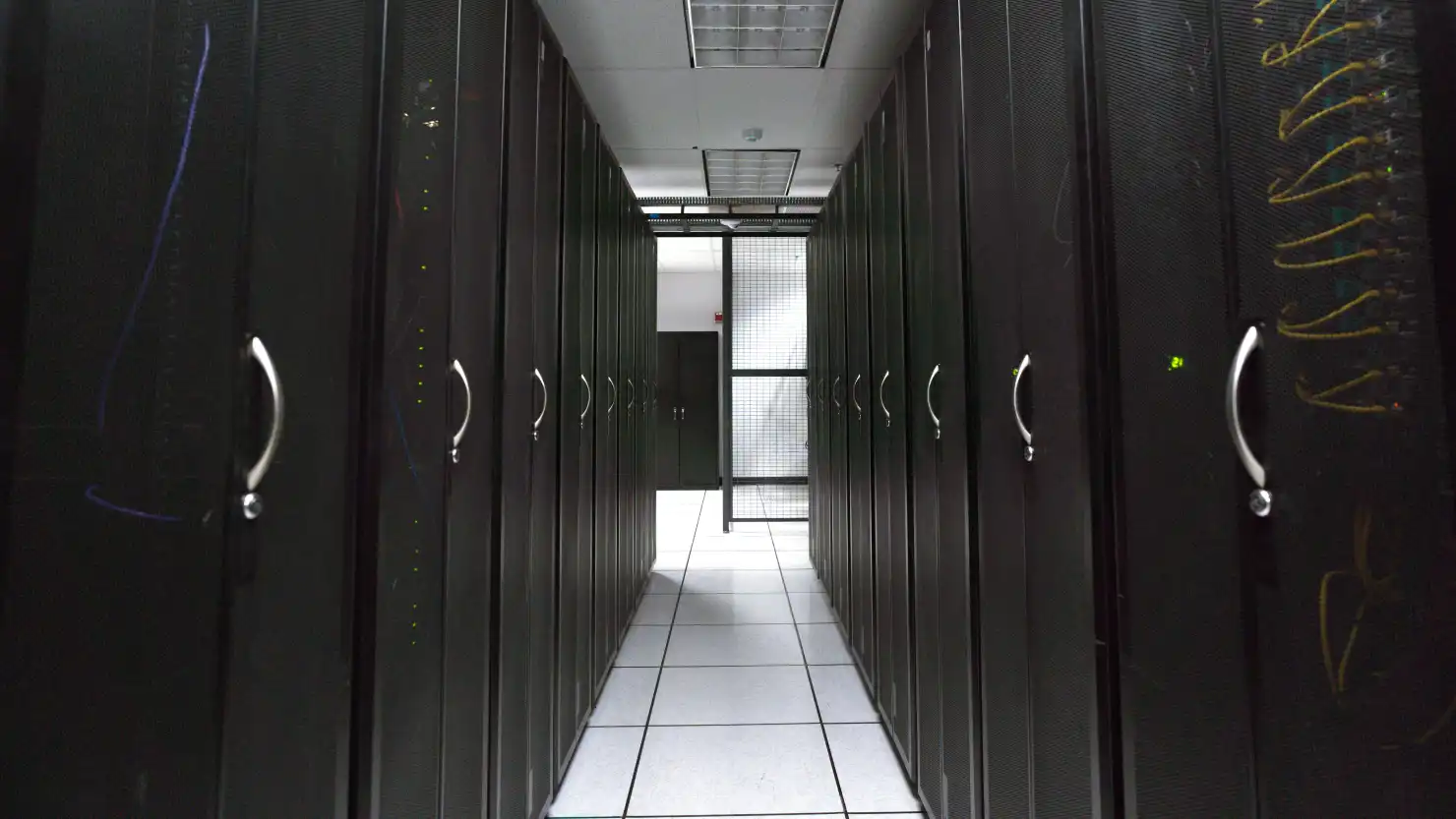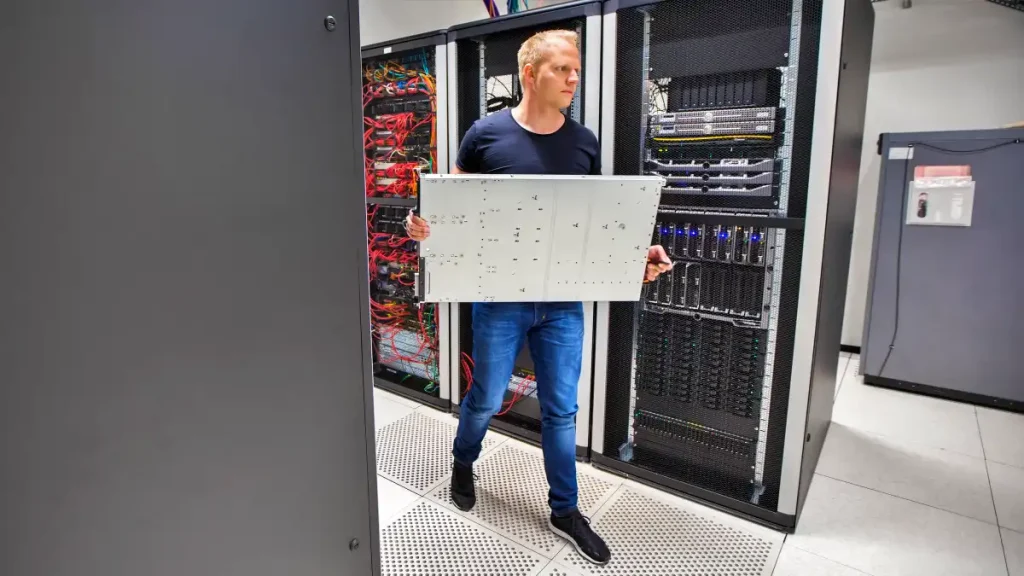Selecting the right data center is critical for businesses looking to colocate IT infrastructure. Whether you are a small business needing reliable IT infrastructure or an enterprise looking for a secure and scalable solution, your choice of data center provider can significantly impact performance, security, and costs. This article provides key considerations to help you evaluate data center providers based on location, scalability, services, and security.

Why Choosing the Right Data Center Matters
Data centers are the backbone of modern business IT. They can store your data, host your applications, and provide the foundation for your IT infrastructure. With the right data center, you can ensure high uptime, protect sensitive data, and scale your business without worrying about IT limitations. Conversely, a poor choice can lead to downtime, security vulnerabilities, and limited growth potential.
Here’s a breakdown of the critical factors you should consider when choosing a data center provider.
Location: Proximity and Disaster Recovery
Proximity to Your Business
Location can be critical, especially if your business requires regular access to physical infrastructure. Choosing a data center near your primary location can reduce latency, improve access for IT staff, and simplify hardware management.
For example, if you’re running a business in Northern California, a nearby data center will allow you to easily deploy or replace hardware and troubleshoot issues. This proximity also ensures faster data transmission, a significant factor for real-time applications and services.
Disaster Recovery and Geographic Redundancy
When evaluating location, consider the potential risks from natural disasters like earthquakes, floods, and hurricanes. Data centers in disaster-prone areas may offer lower prices but can pose higher risks. Look for facilities with solid disaster recovery plans, including geographic redundancy.
Data centers with multiple locations spread across different regions can provide failover options. In the event of a regional disaster, your operations can switch to another data center, ensuring business continuity.
Scalability: Room for Growth
Current Needs vs. Future Growth
Your business will likely grow, and so will your data storage and processing needs. Scalability should be a top consideration when choosing a data center provider. A provider that can accommodate your current needs but lacks the flexibility to scale with you can hinder growth.
Look for providers offering flexible contracts and services that allow you to scale up and down. This might include the ability to rent additional server space, deploy more powerful servers, or integrate cloud services.
For instance, small businesses with modest IT needs might start with a small self-managed colocation. As they grow, they can shift to hybrid or fully managed services.
Power and Cooling Capacity
Scalability also involves physical infrastructure. Data centers must have sufficient power and cooling capacity to handle increased hardware over time. Ask the provider about their future expansion plans and how they accommodate growing clients.
Services: Colocation, Cloud, and Managed Services
Colocation vs. Managed Services
Do you need colocation services where you manage your own hardware, or are you looking for a provider that offers fully managed services? Colocation allows businesses to place their own servers in a data center, but you are responsible for maintenance, monitoring, and management.
On the other hand, managed services allow you to offload the maintenance, monitoring, and management of your IT infrastructure to the provider. This is often a preferred option for businesses without extensive in-house IT capabilities.
For example, Datacate offers a range of services from basic colocation to fully managed infrastructure solutions, giving businesses the flexibility to choose based on their needs.
Additional Services: Backup, Security, and Support
Look for a data center provider offering a comprehensive range of services. These might include:
- Backup and Disaster Recovery Services: Ensure the provider offers automated backup solutions and robust disaster recovery protocols.
- 24/7 Support: The provider should offer round-the-clock support to help resolve any issues quickly.
- Security Services: The provider should offer robust physical and cybersecurity services (more on that below).
Security: Physical and Cybersecurity
Physical Security
Data centers store sensitive business data and critical applications, making them prime targets for theft or sabotage. Physical security is essential to protect against unauthorized access and potential threats.
When evaluating a data center’s physical security, ask about:
- 24/7 Onsite Security: Is there always someone monitoring the facility?
- Access Control Systems: Do they use biometric access controls or keycard systems to restrict entry?
- Video Surveillance: Is there constant video monitoring of the facility?
Many top-tier data centers have multiple layers of security, including mantraps (small rooms that limit access to one person at a time) and strict entry protocols.
Cybersecurity
Cybersecurity is equally essential. Data breaches and ransomware attacks are becoming more common, and a data center must have robust security protocols in place to protect your data.
Ensure the provider offers:
- DDoS Protection: Distributed Denial of Service (DDoS) attacks can take your servers offline. Data centers should provide built-in protection against these attacks.
- Firewall and Intrusion Detection Systems: These systems monitor and block malicious traffic before it reaches your servers.
- Regular Security Audits: The provider should regularly test their security protocols and offer transparency about any findings.
Compliance: Industry Standards and Certifications
If your business operates in a regulated industry, compliance is critical. Many companies, particularly those in finance, healthcare, or government, must comply with specific data handling regulations. When evaluating data center providers, ask whether they hold relevant certifications, including:
- SOC 2 (Service Organization Control): Ensures the provider adheres to best practices for data security, availability, and confidentiality.
- ISO 27001: A globally recognized standard for information security management.
- HIPAA Compliance: Required for businesses that handle sensitive healthcare data.
Failure to comply with industry regulations can result in severe penalties and reputational damage. Choose a provider that has undergone third-party audits and can provide compliance documentation.
Conclusion: Conducting a Comprehensive Assessment
Choosing the right data center for your business requires careful planning and evaluation. Consider location, scalability, services, security, and compliance to find a provider that aligns with your business goals.
Use the resources and tools mentioned in this article to help conduct a thorough assessment. Whether you’re looking for colocation, managed services, or hybrid solutions, making the right choice will provide you with a strong foundation for growth and success.
For expert assistance in selecting the right data center solution for your business, contact Datacate today. We can guide you through the process and offer tailored solutions that meet your specific needs, ensuring your business operates efficiently and securely.







